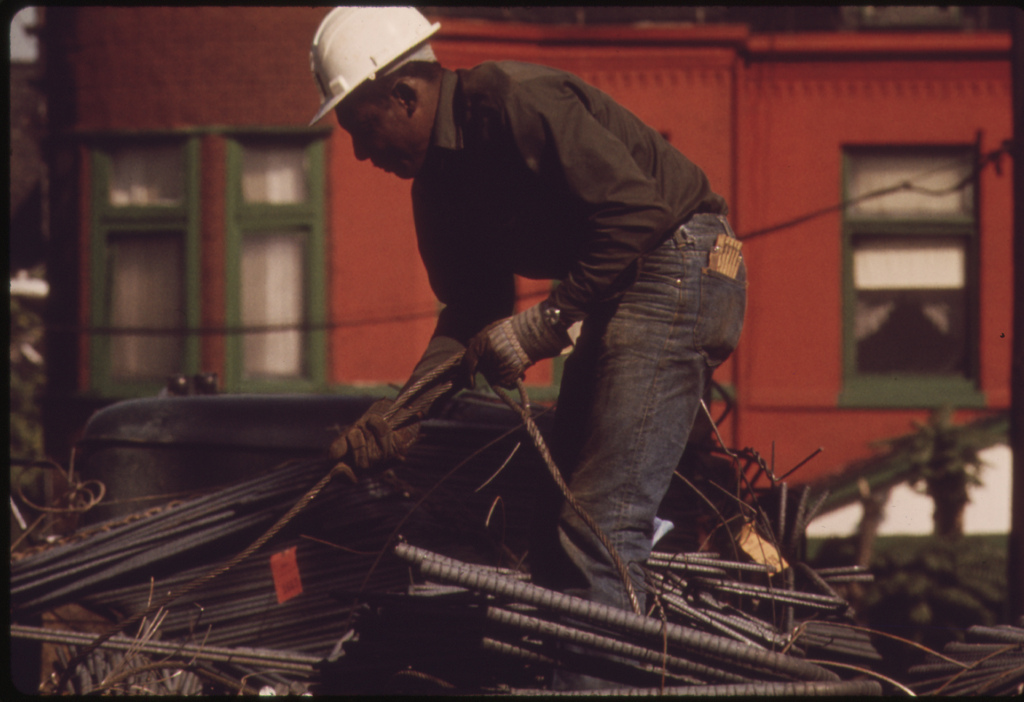I was having breakfast recently with a friend of mine, and we were talking about jobs, careers, and bouncing back from a layoff. His children, one a recent graduate, had experienced a little job trouble in his first year in the work force, including being let go from a job.
 I empathized with the son, since I’ve been through the two-pronged mess of having a job end, and then figuring out what the next step is, professionally and personally. The dad also felt for his son, but wanted him to find something to pay the bills and stay afloat, even if it wasn’t something he was overly passionate about.
I empathized with the son, since I’ve been through the two-pronged mess of having a job end, and then figuring out what the next step is, professionally and personally. The dad also felt for his son, but wanted him to find something to pay the bills and stay afloat, even if it wasn’t something he was overly passionate about.
The conversation switched to a story we had both heard this year. It’s the story of Allison Vesterfelt, a teacher turned writer who sold most everything she had, visited all 50 states, wrote a book, and had her life changed. She’s also one of my favorite interviews on Story Signals.
My friend described how Allison’s story was nice, and he was glad it worked out for her. But he also said after hearing the story, all he could think about was “She just didn’t want to work anymore, so she went on a road trip. I know she says she’s following her true calling, but what happened to finding a job and making a career out of it?”
Let me be clear, my friend is a great guy. He’s kind, funny, trustworthy, hard-working, caring, the kind of person you’d want for a dad or uncle. But hearing him make the blanket statement that anyone who’s trying to figure out their calling just doesn’t want to work, I couldn’t shake it from my mind.
Do millennials simply not want to work? Do we see young millionaires and lifestyle entrepreneurs and think, “I can make money online and live in Costa Rica, surfing every day and drinking margaritas every night!” I don’t think any polite person would ever admit to viewing the internet-grown generation this way, but the basic mindset is the same. Whether startups, art, minimalism, or anything that is fundamentally unstable, most of our elders have a tough time seeing the value (intrinsic or financial) of pursuing such a life.
The saddest part is when pursuing a calling is seen as avoiding work. I can relate, I’ve spent the last ten months writing, working part-time, freelance, and seasonal jobs. With a few exceptions, I’ve avoided jobs that are full-time, wanting to pursue my passion of writing and building a location-independent business.
I have conversation with friends and at networking happy hours where I describe my current state of work, and can see the shift in eye contact, signaling a discomfort and confusion on why I would be going through this voluntarily. Perhaps part of my feelings are displaced shame of when I react to self-doubt, but the root of the question is, do I (and others like me) not want to work?
Personally, I’ll answer the question in two parts.
Do I want to work according to the rules and schedules of the past 50 years? No, I do not. I do not want to place my efforts at the whims of C-level execs, stock markets, and expense sheets that reduce people to line items. No thank you to spending 4% of my working year on vacation (50 work weeks at 40 hours per week, given two weeks of vacation), and no thank you to the belief I need to work the job to make the money for the bigger house, newer car, better vacation location (but not simply more time with loved ones).
I am saying yes to hustling, scratching, dreaming, testing, refining, iterating, and hell yeah working so I can create a life filled with more time and enough money to fulfill the responsibilities and dreams for me and my family. Because as life becomes busier, what I wish for isn’t necessarily an extra $10,000 but and extra 10 days to spend with family and friends, without having to rush off to the next meeting or take an important-to-someone-else call.
For this mini-manifesto to work, the opportunity must exist to lead a tribe, have patrons, and have the tools necessary to do this work on a large scale. Thankfully, the internet allows for this type of scale and tribe-building. Without being the nth person to wax poetic on the world wide web of opportunity, suffice to say it exists.
Chris Guillebeau literally wrote the book on the mindset and practice of low-cost startups. Dane Maxwell and Noah Kagan seem capable of building a business out of anything, sexiness be damned. Eric Ries put an entire framework behind staying lean and always learning, birthing a whole new methodology for how people and businesses operate.
The other elephant in the room most boomers fail to realize is the single job as a career model is dwindling, and has been for some time. In fact, American workers now stick with their jobs longer than they did in the 1980s, which is a fun statistic (and barrel of laughs for you) during this particular conversation. The deeper realization, and entirely different conversation, is that we tend to reflect the worldview we have on those around us.
My friend worked as a teacher for 30 years, and education is still one of the sectors you could spend 30 years, so it’s easier to see why he would have this worldview. My dad was the first entrepreneur I knew, building churches, a CPA business, financial planner, CFO, and gum ball machine refiller. He’s been hired, fired, made partner, and screwed out of money. So I grew up knowing there were a lot of things I could do for work, I probably wouldn’t do just one thing at one place, and that it would take a lot of work.
Yes, in the past 10 months I’ve had more flexibility and made less money than ever before (a feather in my cap I suppose). If we want to discuss pure work ethic though, I don’t have any regrets. I’ve worked two physical (be here now type) jobs for the majority of my time in Nashville, in addition to good ol’ digital hustle of web design, marketing, and ghostwriting. The desire to work has never been a problem for me, and it’s not for most of the people my age who are trying to do something different with our time here on earth.
We desire for our work to have meaning, purpose, and allow the time and space for us to enjoy life with the people we care about. So we hustle about, continually testing and refining until we find the convergence of skill, passion, and income that allow us to live this way. The people I know who are living this way are far from not wanting to work, in fact many need to step away from working too much.
I’m also not vain enough to think we’re the first generation to do work we care about, but I do think we’re standing on the shoulders of giants who questioned authority and the status quo. Combined with the absurd amount of information available on the web, and tools available to connect and build a tribe, and it’s the perfect storm of opportunity to try something new.
What do you think? Am I overly idealistic and avoiding work, or should I (and others like me) push on? Let’s discuss like adults.

What aspect of a “location-independent business” do you find so attractive? Do you desire to move constantly? It’s a risky endeavor, are you sure it’s worth it?